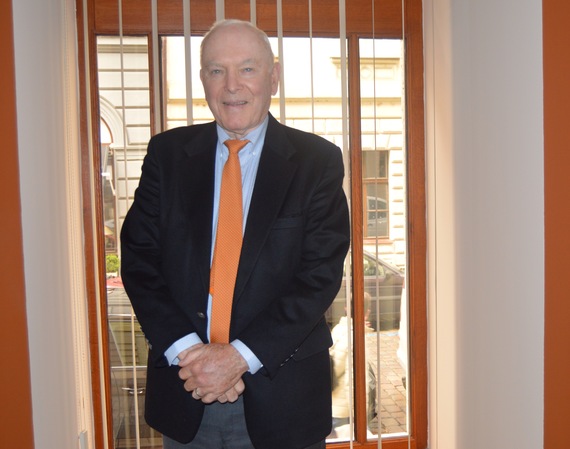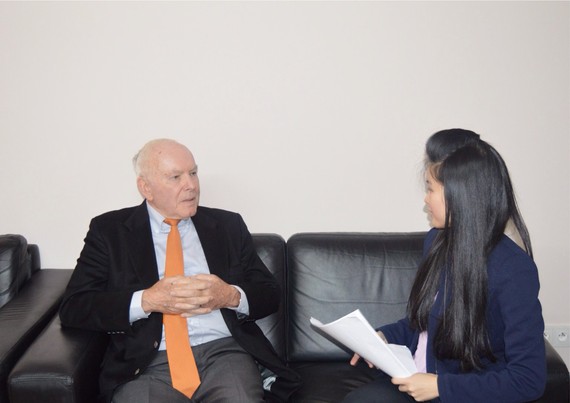Robert Hogan is the founder and president of Hogan Assessment, which advises organizations on hiring the right people, developing key talent, and evaluating leadership potential. He was the first psychologist to demonstrate the link between personality and organizational effectiveness. Today he is the leading international authority on personality assessment and leadership.
Hogan is the author of more than 300 journal articles, chapters and books. He was McFarlin Professor and chair of the Department of Psychology at The University of Tulsa for 17 years. Prior to that, Hogan was professor of Psychology and Social Relations at The Johns Hopkins University. Hogan received his Ph.D. from the University of California, Berkeley, specializing in personality assessment.
Tell me about your early years.
I grew up poor. I was selling magazines when I was 5 years old, and I had my first job when I was 13. Between the ages of 28 and 60, I had two or three different jobs, I worked really hard. That's what you do when you want to be successful. There is no substitute for working hard. You can plan all you want, but if you want to be successful, you have to be ready to work all the time.
When I was in high school, I read articles written by Sigmund Freud and Charles Darwin. I thought that were really interesting and fascinating, particularly the idea that unconscious ideas in your head could lead you to do things that you didn't fully understand. So Freud and Darwin were revolutionary influences on me. In my daily life, being a military officer was a big influence where I learned how to deal with authority and learned about how organizations work and don't work.
Did you have clear career goals when you went to college?
No, I just thought I wanted to be successful, but I didn't know what it meant to be a success. My parents had little formal education. My father finished the third grade, my mother grew up on the farm, and I didn't have a role model for success. I just had to figure it out for myself. My parents instilled a strong work ethic, though. My mother was a housewife, and she was very ambitious and smart. She was the first feminist that I knew and she pushed me very hard to be successful.
What are some key leadership lessons you've learned over the years?
Leadership is an important element for the success of any organization. Good leaders have integrity; they keep the word and you can depend on them. Good leaders make good decisions. That doesn't mean they always get the answer right, but it means they try to get it right and when they make mistakes, they fix them right away. Good leaders know what they are talking about and every employee can benefit from good coaching. If you don't know what you are talking about, you can't coach your employees. Leaders must have a vision. A leader must be able to tell people why what they are doing matters.
What are you most proud of in your career?
I'm pretty proud of the business. I had no background in business and certainly no experience with business. After we were in business for about ten years, a very influential businesswoman came to me and said, "I'd like to buy your business. I'll give you three million dollars." And that point of my life, three million was a lot of money, so I thought about it and said, "If you give me seven million dollars, I'll sell it." The deal didn't go through and, ultimately, I am glad that it didn't. My team and I not only survived through hard times, but we've grown to become one of the leading provider of online personnel assessments in the world.
How do you hire?
We have this psychological assessment for potential job candidates. We give them the test that the job requires and try to match their profile to the job requirements. We do it using numbers in a quantitative method, and we try to keep personal preferences and intuition out of it. The qualities of the candidates depend on the job. If it is an accounting position, you want someone who is careful and detailed. If it's marketing position, you want someone who has big ideas and is creative. If it's a sales job, you want someone who has good social skills.
What advice do you give to new college graduates?
They need to identify their strengths and weaknesses, how they can leverage strengths in an occupational context and how they can minimize their weaknesses. That's not easy; it takes some thought. Most people don't really know where they excel and where they fall short.
I think you have to be strategic about your career; you can't just leave things to chance. Life is like a military campaign; you have to plan very carefully. And if you don't plan, you go nowhere. Planning is everything.
This interview has been condensed and edited for clarity.
This post is part of "CEO Talk" series, which features leaders around the world speaking about their journeys. What does it take to become a successful entrepreneur or CEO? What is the path to success? What challenges did people face and how did they overcome them? Lan Anh and her guests answer all these questions and much more. To view the entire series, visit here.


